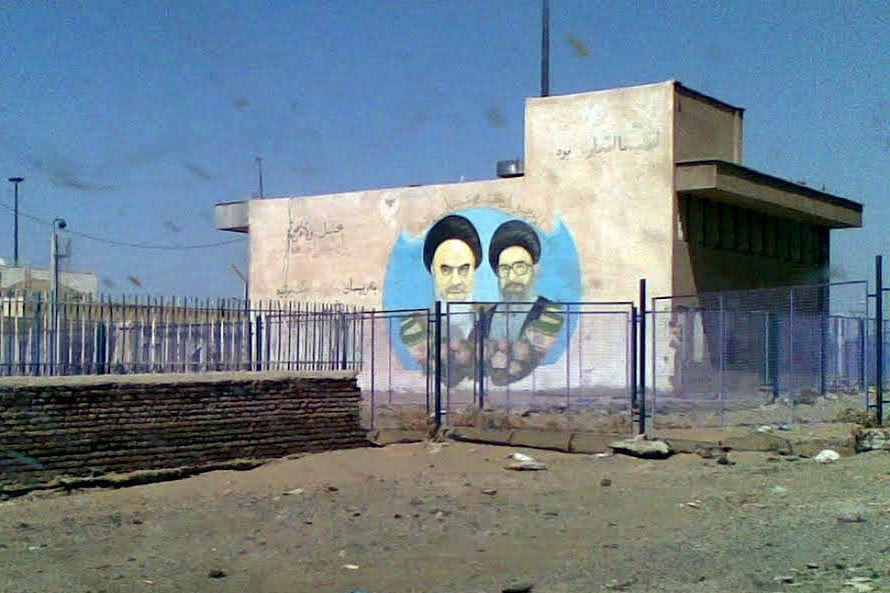
Taftan is a town in Balochistan where the government has conceded far too little in return for far too much

Taftan in Balochistan’s Chaghai district is Pakistan’s border town with Iran. In Taftan tehsil, the estimated population is 25,000 and some 7000 of them live in Taftan town. Taftan is an epitome of the government’s policy of maximum extraction with little responsibility towards people.
Education and health is not on government’s priority -- in Taftan town, there is only one primary school for girls and one high school for boys. Catering to the health needs of residents, there is a 40-year-old Basic Health Unit. The building, renovated by an NGO recently, is a sure indication of deterioration with age. "Water seeps through the ceiling profusely, when it rains," stated a staff member of the facility. Medicine room had very little medicines countable on finger tips. The staff consists of a lady health worker, a grade-9 employee, who handles normal child deliveries. She cannot operate a surgery, however. Besides, there is a grade-6 dispenser who has his intermediate degree in arts. No medical officer or a doctor is posted there. There is no ambulance either.
Safe and clean drinking water, an inevitable necessity, is a luxury that only a few can afford. There is only one government tube-well in Taftan town meant for supplying drinking water to its 7000 residents. Water is too salty to drink, however. Few with means use Iranian mineral water.
Nevertheless, during my visit to a huge water facility in Taftan, I was told that eight tube-wells were supplying 500 to 1000 ton water an hour, depending upon demand, for the Chinese-run Saindak copper project, a half hour drive from Taftan town. At Saindak, I was briefed that the work there remains in progress nine months of a year for twenty four hours a day. It takes 9 hours for the completion of one consignment. Each consignment consists of 47 slabs, each weighing 600 kilogrammes. In just 24 hours, 84,600kg of blister copper is produced through a complex process involving an open pit mine, concentrator and furnace smelter. A total of 22842000kg of copper containing gold and silver is extracted per nine month from Saindak.
Taftan is generating revenue. The primary data from custom office shows that in 2014, the total value of Pakistan’s import from Iran through Taftan border amounted to Rs10489.419 million. The government earned Rs2211.371 million in duty taxes. In 2015, with a total import value of Rs17972.971 million, the government collected Rs5249.169 million in duty taxes. This is not the total amount of taxes that the government obtained, however. Chemical items from Iran and consignments through Bander Abbas of items other than Iranian origin, routed through Taftan though, are taxed by National Logistic Cell in Quetta, the value and duty taxes of which are not recorded at Taftan.
Ironically, the government has conceded far too little in return for far too much. People just recall good old days of easy entry into Iran. In 2007, Iran constructed a 10 feet high concrete wall with a barbed wire installed on it. The wall stretches about 40 kilometer. Iranian security personnel guard their posts built on the wall 24 hours a day. For people of Chaghai district, it is the wall of miseries. Prior to 2007, people recollect how easy it was to cross Iranian side of the border for a host of reasons: meeting relatives, trade, shopping and attending a doctor. In fact, it is not difficult to understand how local people were facilitated by the easy entry.
Zahidan, the capital city of Iran’s province of Seestan o Balochistan, is at a mere distance of 90 kilometer from Taftan. It is just an hour drive from the border town facilitated by a superb road. On the other hand, Quetta city is located at a distance of about 627 kilometer. It takes eight to nine hours to reach the provincial capital.
Life is getting even harder. As per the rules of rahdari permit, residents of Chaghai district can visit their relatives up to Zahidan in Iran for not more than 15 days with an authorisation letter issued by the deputy commissioner of the district without requiring any passport and visa. There are speculations of revoking rahdari permit altogether. When I asked some officials if there were any alternative arrangement to issue passports and visas at any near destination in the event of rahdari permit being nullified, the answer was a definite no! Unsurprisingly, Taftan has all the hallmarks of a security state. There is a civil administration headed by an assistant commissioner, a 17 grade officer. The FC is headed by a wing commandant, himself a lieutenant colonel. In addition to FIA, responsible for visas and passport operations, other government agencies also operate.
The question is who cares? Since the 2013 elections, the incumbent MNA has not visited Chaghai district; people do not know him either. The MPA is well known for being generous in feeding people at home and nothing beyond that. Does this absolve the state from any responsibility towards its public? Of course not!
Any serious step towards Baloch reconciliation necessitates discharging responsibilities towards them. The central government should allocate a specific percentage of all taxes it collects in Taftan on the development of the tehsil with health and education being given the highest priority. Secondly, the availability of doctors should be ensured. Thirdly, people to people contact should only be encouraged. The government will do well to continue with the rahdari facility. In order to ensure a genuine Baloch commitment from bullet to ballot, a sincere switchover from colonial type extraction to Baloch development is the way forward!